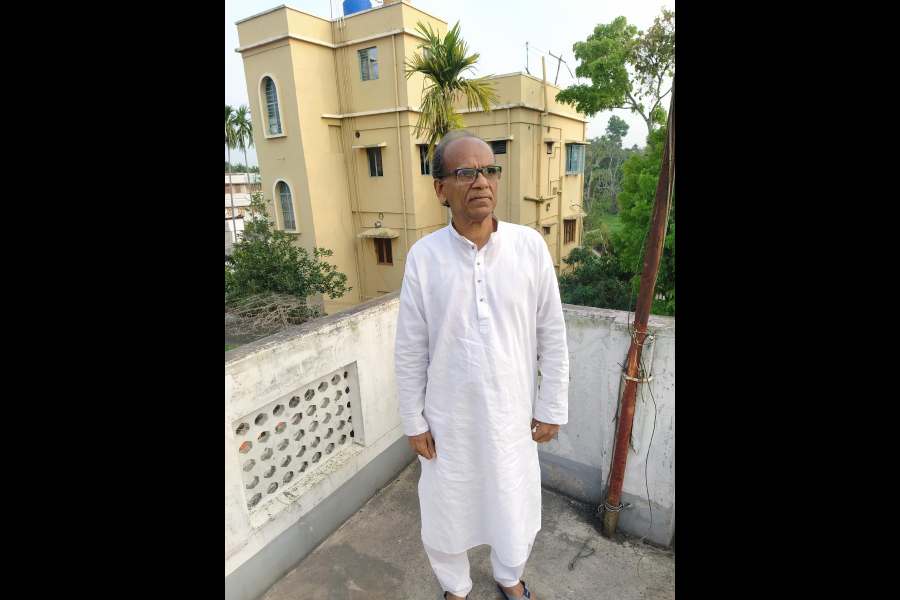Earlier this year, when the central government issued the Citizenship Amendment Act (CAA) rules, Bengali writer-activist Kapil Krishna Thakur was in Agartala attending a literary meet. He recalls how his phone kept buzzing with distress calls, “Most of them were Dalits who had migrated from East Pakistan after Partition, utterly confused about the fate of their citizenship.”
Thakur’s worst fears over the citizenship conundrum have come true, or appear to have. He says, “It all began in 2003 when the Citizenship Amendment Bill was tabled by the NDA government. We failed to convince parliamentarians of its far-reaching implications and the bill was passed without any hitch.” Thakur, along with some fellow activists, had lodged a strong protest in New Delhi against the “kala kanoon”. They could sense, he says, that millions of victims of Partition would come to be branded “illegal immigrants”.
Thakur, a writer for over five decades, has been chronicling the lives of backward people, especially those who were forced to leave home and hearth at the time of Independence and after. He has written poetry, novels, short stories, essays and even launched various little magazines. He’s what you may call a doyen of the Bengali Dalit literary movement, which bloomed in the mid-1980s. Says Thakur, “For me, literature is a weapon to liberate Dalits from the oppression of the upper castes.”
After several botched attempts, I managed to catch up with Thakur at his home in Bamangachi, 40 kilometres north of Sealdah. The CAA notification has wreaked havoc with his usual routine; he has to meet and address more and more people apprehending loss of citizenship.
Thakur’s study overlooks pretty houses in a lush co-operative society. It is late afternoon and the golden glow of the sun lights up the room with all its books and magazines, trophies and framed certificates. His son comes into the room and turns on an audio-recording phone app. I am the second journalist who has arrived since morning. Thakur explains, “The nuances of the new law are quite complicated. It is meant to confuse and inject fear in people.”
Thakur was born in Saatpar village in Faridpur district of East Pakistan in 1956. Five months after his birth, his parents were forced to cross the international border and take refuge in the Kanksa Transit Camp in Burdwan. Soon after, he lost his elder brother and mother. Growing up in abject poverty, his childhood was nomadic, shifting homes, changing schools, sometimes living on this side of the border and sometimes that — there was no barbed fencing those days.
The memory of those trials and tribulations as a Dalit migrant has left a deep imprint on Thakur’s literary creations. “My lived experience and the sufferings of people around me fuel my literature,” he says. His novel Ujaantalir Upakatha narrates the saga of the Namasudras, who have traditionally worked as farmhands, boatmen and fisherfolk. “The characters in the novel are all from real life; in many cases I’ve even retained their original names,” he says.
The writing is replete with vivid images of riverine eastern Bengal, much of it now part of Bangladesh. “The seed of the novel was there in my short story Madhumati Onek Dur,” says Thakur. The story begins and ends at a ferry ghat by the Madhumati river when the protagonist visits his birthplace as a foreigner after Partition.
Notwithstanding the tumultuous childhood, Thakur continued with his education. He did his master’s in Bengali from Calcutta University, and thereafter, he joined the Reserve Bank of India’s Calcutta office as a coin and notes examiner. In the meantime, he co-founded some little magazines, including Nikhil Bharat and Chaturtha Duniya to groom Dalit writers. Along with his literary activities, he carried on his social activism to support the cause of Dalit refugees across India.
His activism had always been Left-leaning. “I joined the Leftist student movement during my college days,” says Thakur. He continues, “I got drawn to politics inspired by Jogendranath Mandal, the icon of Dalit politics.” He remembers accompanying Mandal during his political campaign as a candidate of the Republican Party of India, supported by the Left parties. Thakur was a school student at that time.
The Citizenship Bill of 2003 pushed Thakur into active politics. “To raise mass awareness, I involved the leaders of the Matua sect, which included Boroma Binapani Devi. We also sensitised many Left Front leaders about the dangerous design of the bill,” he says. Thakur has been closely associated with the Matua Mahasangha of Thakurnagar for decades. His book Matua Andolan O Banglar Anunnata Samaj is well regarded by the leadership as well as the followers of the sect.
In 2016, to strengthen his effort to turn the Citizenship Amendment issue into a political campaign, he fought elections as a CPI candidate from the Gaighata Assembly seat. Although he couldn’t win, he spread his message on the dangers of getting misled on citizenship issues by his political opponents.
Now, when notification of CAA is fomenting anxiety and uncertainty among people, Thakur is back in his activist mode. In 2018, he wrote a poem titled Chhinnomul or The Rootless. It ends thus: Ekdin amrao chhinnomul hoye jaabo/Biswas koro, sekotha bhabini kokhono... Some day we shall all be rootless/Believe me, I never thought this was possible.”











